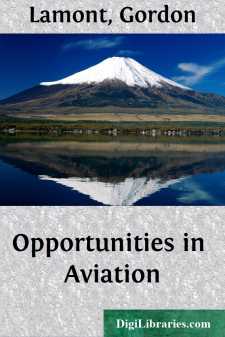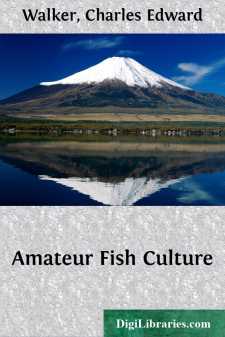Technology & Engineering
Technology & Engineering Books
Sort by:
by:
Herman Friedl
Ice for Commercial Purposes ICE for commercial purposes is obtained in two ways: either by cutting during the winter time from our lakes and rivers and storing in large Ice Storage Houses located alongside, or by freezing pure clean water by means of artificial refrigeration. All authorities are agreed that artificial ice is more sanitary than natural ice and it is only a matter of time when the use of...
more...
Introduction The art and science of agriculture embrace most intentional human efforts to control biological activity so as to produce plants and animals of the sort wanted, when wanted. Rubber plantations, cattle ranches, vegetable gardens, dairy farms, tree farms, and a host of similar enterprises all represent human efforts to compel nature to serve man. Those who undertake agriculture have had,...
more...
CHAPTER I. INTRODUCTION. Our distance from the old world, and the favorable circumstances in which we have been placed with respect to the other nations of the new world, have made it so easy for our government to adhere to a pacific policy, that, in the sixty-two years that have elapsed since the acknowledgment of our national independence, we have enjoyed more than fifty-eight of general peace; our...
more...
I COMMUNICATION AMONG THE ANCIENTS Signaling the Fall of Troy—Marine Signaling among the Argonauts—Couriers of the Greeks, Romans, and Aztecs—Sound-signaling—Stentorophonic Tube—The Shouting Sentinels—The Clepsydra—Signal Columns—Indian Fire and Smoke Signals. It was very early in the history of the world that man began to feel the urgent need of...
more...
CHAPTER I ESSENTIALS OF SUCCESS Columella, the much traveled Spanish-Roman writer of the first century A. D., said that for successful farming three things are essential: knowledge, capital and love for the calling. This statement is just as true today as it was when written 1900 years ago by this early writer on European agriculture. Every man who loves the calling and has an ambition to become a...
more...
by:
Gordon Lamont
INTRODUCTION Any ordinary, active man, provided he has reasonably good eyesight and nerve, can fly, and fly well. If he has nerve enough to drive an automobile through the streets of a large city, and perhaps argue with a policeman on the question of speed limits, he can take himself off the ground in an airplane, and also land—a thing vastly more difficult and dangerous. We hear a great deal about...
more...
CHAPTER I INTRODUCTORY Fish culture of a certain kind dates from very early times, but its scientific development has only come about quite recently. Most people know that in our own country the monks had stew ponds, where they kept fish, principally carp, and also that the Romans kept fish in ponds. In the latter case we hear more often of the eel than of other fish. The breeding of trout and salmon,...
more...
INTRODUCTION Since the earliest communities of human beings first struggled for supremacy and protection, the principles of warfare have remained unchanged. New methods have been evolved and adopted with the progress of science, but no discovery, save perhaps that of gunpowder, has done so much in so short a time to revolutionize the conduct of war as aviation, the youngest, yet destined perhaps to be...
more...
CHAPTER I IT IS an old saying that "any fool can farm," and this was almost the truth when farming consisted chiefly in reducing the fertility of new, rich land secured at practically no cost from a generous Government. But to restore depleted soils to high productive power in economic systems is no fool's job, for it requires mental as well as muscular energy; and no apologies should be...
more...
by:
Richard Bonner
CHAPTER I. "That's it, Jack. Let her out!" "Suffering speed laws of Squantum, but she can travel!" exclaimed Dick Donovan, redheaded and voluble. "I tell you, electricity is the thing. Beats gasoline a million ways," chimed in Tom Jesson. Tom sat beside his cousin, Jack Chadwick, on the driver's seat of a curious-looking automobile which was whizzing down the smooth,...
more...











